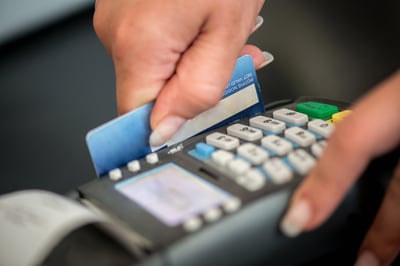Cash Back Credit Cards
Are they helping or hurting your finances?

Finding a credit card that meets your personal preferences and one that will help your credit can seem like a difficult search. Over the years, many credit card issuers have begun offering cards that have cash back rewards as a way to lure people into using their credit cards, but not every card is created equally. Before you sign up for cash back rewards cards, consider these factors to pick the best card for your needs.
What is the Interest Rate?
Getting cash back on your purchases seems like a great perk, but it really isn’t if the interest rate is higher than what you’d qualify for with a non-cash back card. If you are looking at a cash back card that has an interest rate on par with non-cash back cards, then you’ve probably found a good one. Do read the fine print carefully, though. Some cash back rewards cards can carry interest rates of up to 25 percent, which means whatever cash you rack up in rewards simply will not outweigh the amount of money you pay in interest, especially if you carry balances on your credit cards.
Is there an Annual Fee?
Before picking a cash back rewards card, look at the annual fee associated with the card. Some cards will offer no annual fee, while others will charge anywhere from $40 to $500 depending on the card’s limit, perks, and the number of cardholders on the account. These substantial annual fees will ensure that any cash back you earn will not justify the annual fee you must pay to have the card. If you have your heart set on a cash back rewards card, do look for one with no or a low annual fee associated with it, so you are actually benefiting from your rewards.
Have you Analyzed Your Spending?
Before you sign up for cash back rewards cards, it is a good idea to analyze your spending and get a handle on where you spend the most money and why you spend it there. Many rewards cards will offer different return rates depending on the spending categories where you are using your card. For example, some cards will offer more significant rewards on travel expenses and food expenses, while others will provide a flat rate across the multiple categories. If you are planning to use your cash back rewards card most often at restaurants, look for a card that offers double rewards at such establishments. If you commonly use your card across many different spending categories, look for one that provides a flat-fee.
Why Do You Want This Type of Card?
Think about why you want a cash back rewards card before you sign up for one. If you want one to rack up points towards travel, it may be an excellent way to make that goal happen, but if the idea of cash back is super enticing, you need to think about why. Many people find themselves spending more on these credit cards just to see the cash back add up more quickly. Heavy spending can lead to potential problems with debt and can damage your credit in the long run.
Credit cards can be a helpful tool to build your credit. Building credit allows you access to many benefits, but credit scores can quickly be damaged by uninformed decisions. Before you pick a credit card, read the fine print carefully and consider all of the pros and cons of a card before you apply.
